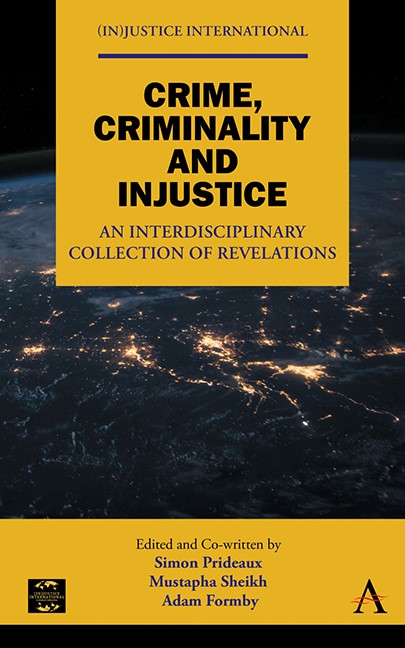Book contents
- Frontmatter
- Dedication
- Contents
- Acknowledgements
- List of Editors and Contributors
- Editor’s Introduction to the Book
- Part One Incarceration, Cultural Destruction and Ecocide: The Alienation of Ethnic Minorities, Nature and Indigenous Peoples
- Part Two The Impoverishment, Exclusion and Maltreatment of the Working Poor
- Part Three Disability, Poverty and Neglect
- Part Four Youth, Gender, Migration and Human Trafficking
- Concluding Remarks
- Index
Chapter One - The Detainment of Uyghur Muslims in Xinjiang, China: A Case Study of State and Corporate Crime?
Published online by Cambridge University Press: 14 November 2023
- Frontmatter
- Dedication
- Contents
- Acknowledgements
- List of Editors and Contributors
- Editor’s Introduction to the Book
- Part One Incarceration, Cultural Destruction and Ecocide: The Alienation of Ethnic Minorities, Nature and Indigenous Peoples
- Part Two The Impoverishment, Exclusion and Maltreatment of the Working Poor
- Part Three Disability, Poverty and Neglect
- Part Four Youth, Gender, Migration and Human Trafficking
- Concluding Remarks
- Index
Summary
A Contextual Introduction
Ethnic minority Uyghur Muslims residing in Xinjiang, China, have long endured a history of discriminatory practices at the hands of the Chinese government (Enos 2019). Certainly, the historical relationship between the Uyghur Muslims and China was, and still is, characterised by conflict and complexity. The dynamics of this relationship became further entangled in political complications during the post– 9/11 epoch. The tolerance of the Chinese government towards ethnic minority Uyghurs began to rapidly decline and a burgeoning discourse of terrorism was exercised to justify the unrelenting persecution of Uyghur Muslims in Xinjiang (Van Wie Davis 2008; Enos 2019; Raza 2019; Zenz 2019a). Based on government reports that re-education ‘centres’ (which essentially were and are detention camps) for Uyghur Muslims in Xinjiang were implemented around 2013 and the scale of these political re-education camps (with their insidious connotations) began to rapidly increase to unprecedented levels in Spring 2017 when Chen Quanguo was appointed as the Xinjiang Uyghur Autonomous Region’s (XUAR) new party secretary (Zenz 2019a).
Moreover, Chinese officials, after initially denying the existence of these re-education ‘camps’, acknowledged and justified their existence on the instruction of the Chinese Communist Party who decreed that all Uyghurs possess extremist beliefs and separatist ideologies that pose a threat to China. Thus, the ‘camps’ evoked a means to eliminate ‘threats to China’s territorial integrity, government and population’ (Maizland 2019: no page). A report by the Congressional-Executive Commission on China (CECC) (2020:273) suggested that ‘as many as 800,000 to 1.1 million individuals had been or remained detained at such facilities since around April 2017’. Indeed, over the course of 2018, authorities in the XUAR increased the intensity of pervasive surveillance in order to target Uyghur Muslims ‘resulting in detention and severe limits on their freedom of movement, expression and religion’ (CECC 2020:273).
Even so, the full extent of the historically complicated relationship between Uyghur Muslims and China, that has resulted in the construction of political re-education centres and mass detainment of Uyghurs, transcends far beyond the limited scope of this case study. However, this chapter on the detainment of Uyghur Muslims in Xinjiang will be divided into two broader sections in an endeavour to assert the applicability of this case to the particular theoretical rationalisations of ‘State crime’ and ‘corporate crime’ whilst critically analysing theoretical implications of ‘social harm’.
- Type
- Chapter
- Information
- Crime, Criminality and InjusticeAn Interdisciplinary Collection of Revelations, pp. 9 - 22Publisher: Anthem PressPrint publication year: 2023

